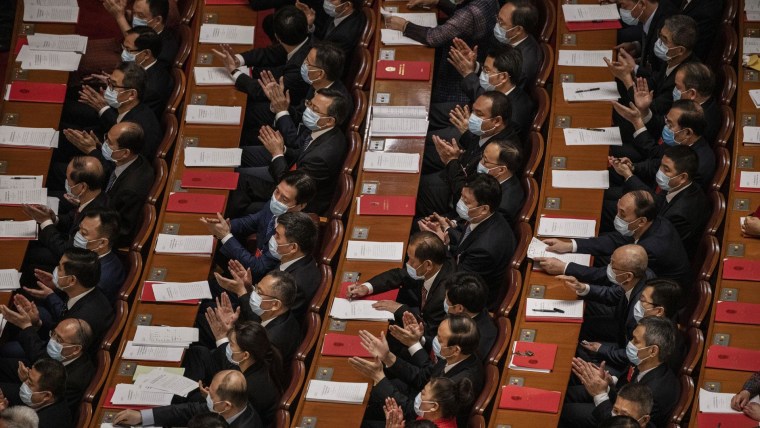HONG KONG — Beijing formally enacted security laws for Hong Kong on Tuesday, according to media reports, paving the way for one of the most profound changes to the governing of the territory in decades.
China stunned the world in May when it announced that it would side-step Hong Kong’s own legislature and pass national security laws direct from Beijing.
According to Hong Kong’s South China Morning Post, the law was approved unanimously by the National People’s Congress Standing Committee (NPCSC) and is expected to carry a maximum penalty of life in jail.
The law, passed on the eve of the 23rd anniversary of Hong Kong’s return to Chinese rule, will allow Beijing to set up special police and prosecution units in Hong Kong to punish crimes considered threatening to China.
State media is expected to publish details of the law — which comes in response to last year’s sometimes violent pro-democracy protests in the city and aims to tackle subversion, terrorism, separatism and collusion with foreign forces — later on Tuesday.
Amid fears the legislation will crush the global financial hub’s rights and freedoms, and reports that the heaviest penalty would be life imprisonment, prominent pro-democracy activist Joshua Wong said he was quitting Demosisto, the pro-democracy group he formed.
“The will of Hong Kong will not be frozen by National Security laws or any evil law,” Wong said in a written statement when reports of the new law emerged. “I will continue to stay in my home, Hong Kong, until they silence me.”
The move follows widespread pro-democracy protests that swept through Hong Kong much of last year.
The security law sparked global condemnation when proposed in May, during China’s National People’s Congress — a huge annual political gathering where Communist Party cadres and leaders meet to decide policy.
The meeting approved the framework of the law by 2,878 votes to 1, but the details were only furnished this month by senior party officials.
The final enactment of the law came Tuesday after a round of three-day meetings of the Standing Committee of the National People’s Congress — the top decision-making body of China’s parliament.
The United States has heavily criticized the law and said it will withdraw some of the preferential trade conditions it extends toward Hong Kong, stating that the territory can no longer be regarded as sufficiently autonomous from the mainland.
On Friday, Secretary of State Mike Pompeo said the U.S. was taking action to “punish” China for “eviscerating Hong Kong’s freedoms” by announcing U.S. visa restrictions for “current and former” Communist Party officials.
“The Chinese Communist Party’s threats to retaliate by restricting visas for U.S. citizens exposes once again how Beijing refuses to take responsibility for its own choices,” Pompeo said in a statement late Monday.” If China wants to regain the trust of Hong Kongers and the international community, it should honor the promises it made to the Hong Kong people and to the United Kingdom in the U.N.-registered 1984 Sino-British Joint Declaration.”
On Thursday, the U.S. Senate also approved a bill that would impose mandatory sanctions on people or companies that back efforts to restrict Hong Kong’s autonomy.
Reuters and Ed Flanagan contributed.













